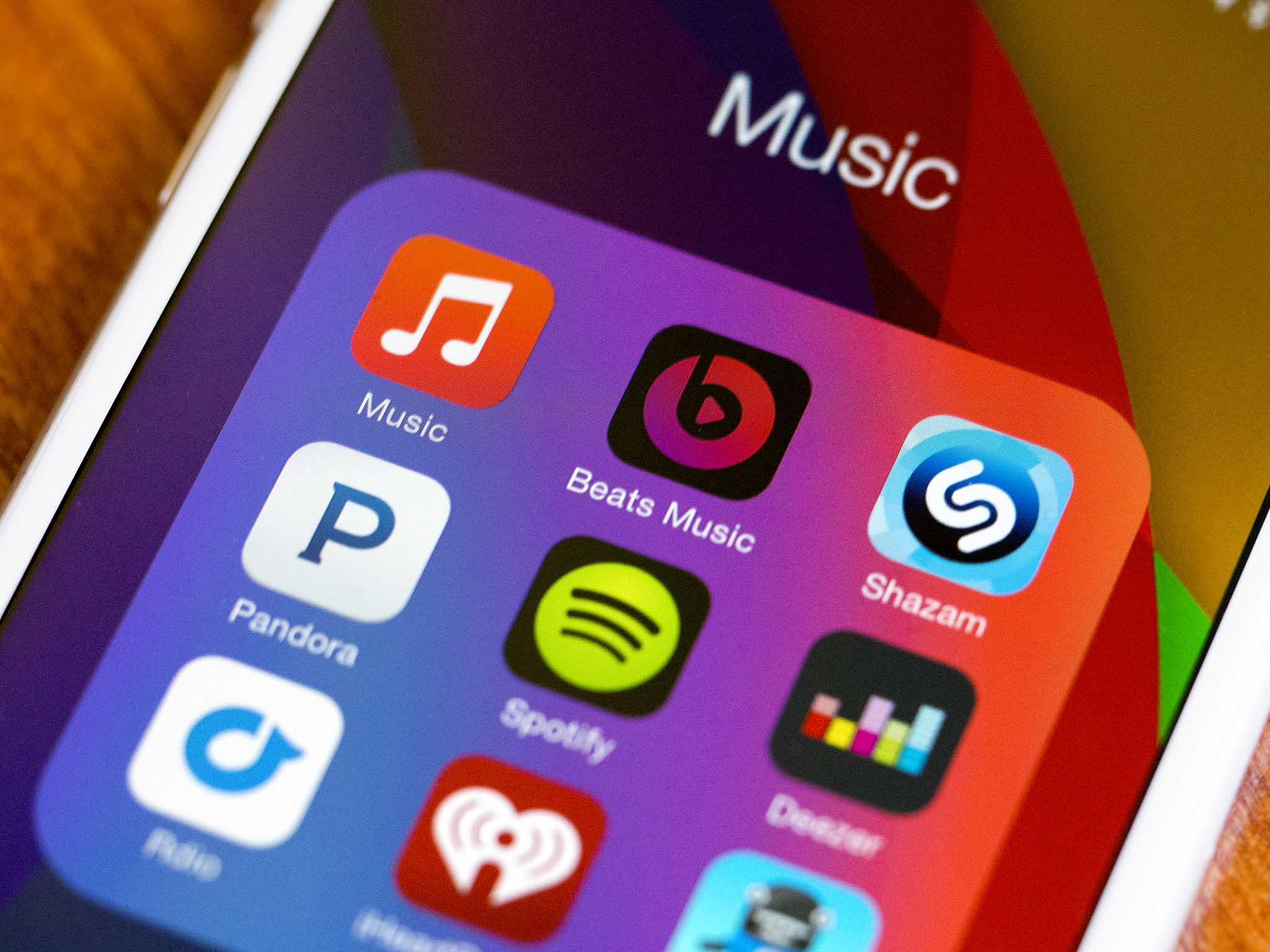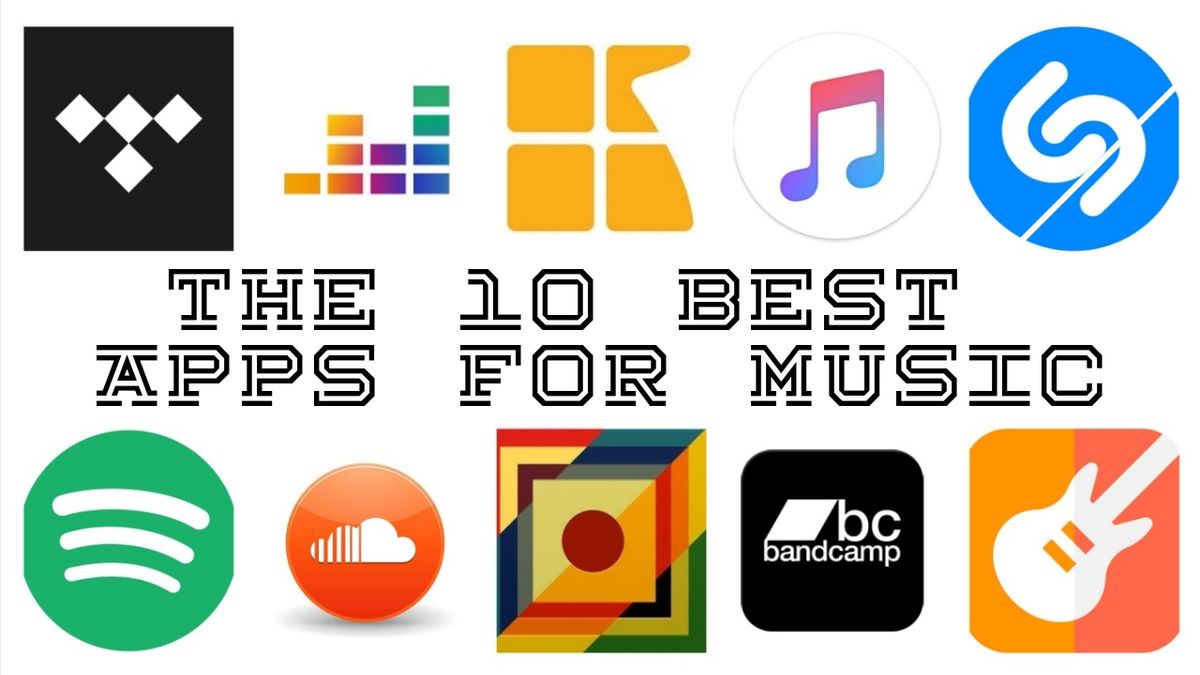Music Apps: The Ultimate Guide To Enhancing Your Listening Experience
Hey there, music lovers! If you're anything like me, you probably spend a good chunk of your day jamming out to your favorite tunes. But have you ever stopped to think about how music apps have completely transformed the way we experience music? It’s wild, right? Gone are the days of flipping through CDs or waiting for your favorite song to play on the radio. Today, music apps are the kings of the audio world, and they’ve got something for everyone. So, buckle up, because we’re diving deep into the world of music apps and uncovering everything you need to know.
From streaming your favorite tracks to discovering new artists, music apps have become an essential part of our daily lives. Whether you're commuting to work, working out at the gym, or just relaxing at home, these apps have got you covered. But with so many options out there, it can be overwhelming to choose the right one. That’s where this guide comes in. We’re here to break it down for you, so you can find the perfect app to suit your music needs.
Let’s not forget the power of personalization. Music apps today aren’t just about playing songs; they’re about creating a unique experience tailored to your tastes. With algorithms that learn your preferences and recommend new tracks, it’s like having a personal DJ in your pocket. So, let’s get started and explore the amazing world of music apps!
- Whatfinger Your Ultimate Guide To The Leading Alternative News Platform
- Uncovering The Secrets Of The Us Phonebook Your Ultimate Guide
Table of Contents
- What Are Music Apps?
- The History of Music Apps
- Popular Music Apps You Should Know
- Key Features to Look For
- Understanding Subscription Models
- Free vs. Paid Music Apps
- Privacy Concerns with Music Apps
- How to Choose the Right Music App
- The Future of Music Apps
- Wrapping It Up
What Are Music Apps?
Alright, let’s start with the basics. Music apps are digital platforms that allow you to stream, download, and listen to music on your devices. These apps have revolutionized the way we consume music by providing instant access to millions of songs from all over the world. Whether you're into pop, rock, hip-hop, or classical music, there’s an app out there that’s got you covered.
But here’s the kicker: music apps aren’t just about playing songs. They offer a range of features like playlists, radio stations, and even live concerts. Some apps even let you create your own mixes and share them with friends. It’s like having a personal jukebox in your pocket, but way cooler.
And let’s not forget about the convenience factor. With music apps, you can access your favorite tunes anytime, anywhere, as long as you’ve got an internet connection. No more worrying about carrying around bulky CDs or dealing with scratched vinyl. It’s all about ease and accessibility, and that’s what makes music apps so appealing.
- Xresolver Your Ultimate Guide To Unlocking Digital Freedom
- Mangasee123 The Ultimate Manga Reading Platform You Need To Know About
The History of Music Apps
Music apps haven’t always been around, you know. Back in the day, if you wanted to listen to music, you had to rely on physical media like cassette tapes or CDs. But then, in the early 2000s, things started to change. The rise of the internet and advancements in technology paved the way for the birth of music streaming services.
Early Days of Streaming
One of the first major players in the music streaming game was Pandora. Launched in 2000, Pandora introduced the world to the concept of personalized radio stations. Users could create stations based on their favorite artists or songs, and the app would play similar tracks. It was a game-changer at the time, and it set the stage for the music apps we know today.
Then came Spotify in 2008, and everything changed. Spotify took the idea of streaming to the next level by offering on-demand access to millions of songs. Users could create playlists, share tracks with friends, and even download music for offline listening. It was a huge hit, and it quickly became one of the most popular music apps in the world.
The Rise of Competitors
Spotify’s success didn’t go unnoticed, and soon enough, other tech giants jumped on the bandwagon. Apple launched Apple Music in 2015, and Google followed suit with YouTube Music. These apps brought their own unique features to the table, like exclusive content and better integration with other services. Today, the music app market is more competitive than ever, with new players emerging all the time.
Popular Music Apps You Should Know
So, which music apps are worth checking out? Let’s take a look at some of the most popular ones out there:
- Spotify: The king of music streaming, Spotify offers a vast library of songs, personalized playlists, and even podcasts.
- Apple Music: With exclusive content and seamless integration with Apple devices, Apple Music is a strong contender in the music app world.
- YouTube Music: If you’re a fan of music videos, YouTube Music is the app for you. It combines the power of YouTube with a music streaming service.
- Pandora: Still going strong after all these years, Pandora offers personalized radio stations and a huge selection of tracks.
- Amazon Music: With its Prime integration and extensive library, Amazon Music is a great option for Amazon lovers.
But that’s not all. There are plenty of other apps out there, each with its own unique features and offerings. From SoundCloud to Tidal, the options are endless. It’s all about finding the one that suits your needs and preferences.
Key Features to Look For
When it comes to music apps, not all features are created equal. Here are some key features you should look for when choosing an app:
- Library Size: How many songs are available on the app? A larger library means more options for you.
- Personalization: Does the app offer personalized playlists and recommendations? This can make your listening experience more enjoyable.
- Offline Listening: Can you download songs for offline listening? This is a must-have feature if you’re often in areas with no internet connection.
- Integration: Does the app integrate with other services you use, like smart speakers or fitness apps? This can enhance your overall experience.
- User Interface: Is the app easy to navigate and visually appealing? A good user interface can make a big difference in how much you enjoy using the app.
These are just a few of the features to consider. Depending on your needs, you might prioritize one feature over another. For example, if you’re a fitness enthusiast, you might want an app that integrates with your workout apps. Or if you’re a fan of live concerts, you might want an app that offers exclusive live streams.
Understanding Subscription Models
Now, let’s talk about how music apps make money. Most apps operate on a subscription-based model, where users pay a monthly fee to access premium features. But there are different types of subscription models out there, and it’s important to understand them before committing to an app.
Freemium Model
Many music apps offer a freemium model, where you can use the app for free but with certain limitations. For example, you might only be able to listen to ad-supported content or have limited access to features like offline listening. If you want to unlock all the features, you’ll need to upgrade to a paid subscription.
Family Plans
Some apps also offer family plans, which allow multiple users to share one subscription. This can be a great option if you’ve got a household full of music lovers. Just make sure everyone in the family is cool with sharing playlists and other data.
Student Discounts
If you’re a student, you might be eligible for a discounted subscription. Many apps offer special rates for students, so it’s worth checking out if you’re still in school. Just remember to verify your student status when signing up.
Free vs. Paid Music Apps
So, should you go for a free or paid music app? That depends on your needs and budget. Free apps are great if you’re just starting out and don’t want to commit to a subscription. But if you’re a serious music lover, a paid subscription might be worth the investment.
Advantages of Paid Apps
Paid music apps offer a range of benefits, including:
- No ads, which can be a huge relief if you hate interruptions.
- Unlimited access to features like offline listening and high-quality audio.
- Exclusive content, like live concerts and artist interviews.
Disadvantages of Free Apps
On the flip side, free apps come with their own set of drawbacks, such as:
- Frequent ads that can disrupt your listening experience.
- Limited access to features and content.
- Lower audio quality in some cases.
At the end of the day, it’s all about weighing the pros and cons and deciding what works best for you.
Privacy Concerns with Music Apps
Let’s not sugarcoat it: music apps collect a lot of data about their users. From your listening habits to your location, these apps gather information to improve their services. But with great power comes great responsibility, and it’s important to be aware of the privacy implications.
Data Collection
Most music apps collect data to personalize your experience. This can include things like your favorite genres, artists you listen to frequently, and even the time of day you tend to listen. While this data can enhance your listening experience, it’s important to understand how it’s being used.
Privacy Settings
Many apps offer privacy settings that allow you to control how your data is collected and used. Take some time to review these settings and adjust them to your liking. You might be surprised at how much control you have over your data.
Security Measures
Reputable music apps take security seriously and implement measures to protect your data. Look for apps that use encryption and other security protocols to keep your information safe. And don’t forget to use strong passwords and enable two-factor authentication whenever possible.
How to Choose the Right Music App
With so many music apps out there, how do you choose the right one? Here are a few tips to help you make an informed decision:
- Know Your Needs: What features are most important to you? Do you prioritize offline listening, personalization, or integration with other services?
- Check the Library: Does the app have the songs and artists you love? A large library is great, but if it doesn’t have the tracks you want, it’s not worth it.
- Read Reviews: What do other users have to say about the app? Reading reviews can give you valuable insights into the app’s strengths and weaknesses.
- Try Before You Buy: Many apps offer free trials, so take advantage of them to see if the app is right for you before committing to a subscription.
Remember, the best music app for you might not be the best for someone else. It’s all about finding the one that fits your unique needs and preferences.
The Future of Music Apps
So, where is the future of music apps heading? With advancements in technology and changing consumer preferences, the possibilities are endless. Here are a few trends to watch out for:
- AI and Machine Learning: As AI and machine learning continue to evolve, we can expect even more personalized recommendations and features.
- Virtual and Augmented Reality: Imagine attending a virtual concert or experiencing music in
- Hdtoday Your Ultimate Destination For Streaming Movies Online
- Why Myflixerto Is Your Ultimate Streaming Haven

Beats Music might find itself bundled with iOS in 2015 iMore
:max_bytes(150000):strip_icc()/014_best-free-music-app-iphone-2000170-5c4638d3c9e77c00010e8c3e.jpg)
13 Best Free Music Apps for iPhone

The 10 best music apps to download right now Louder